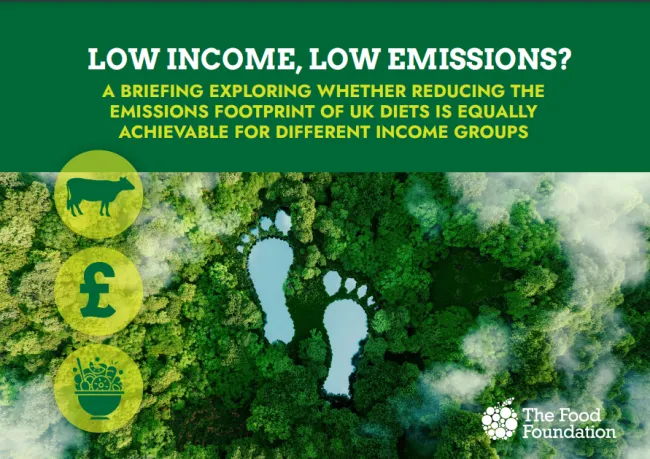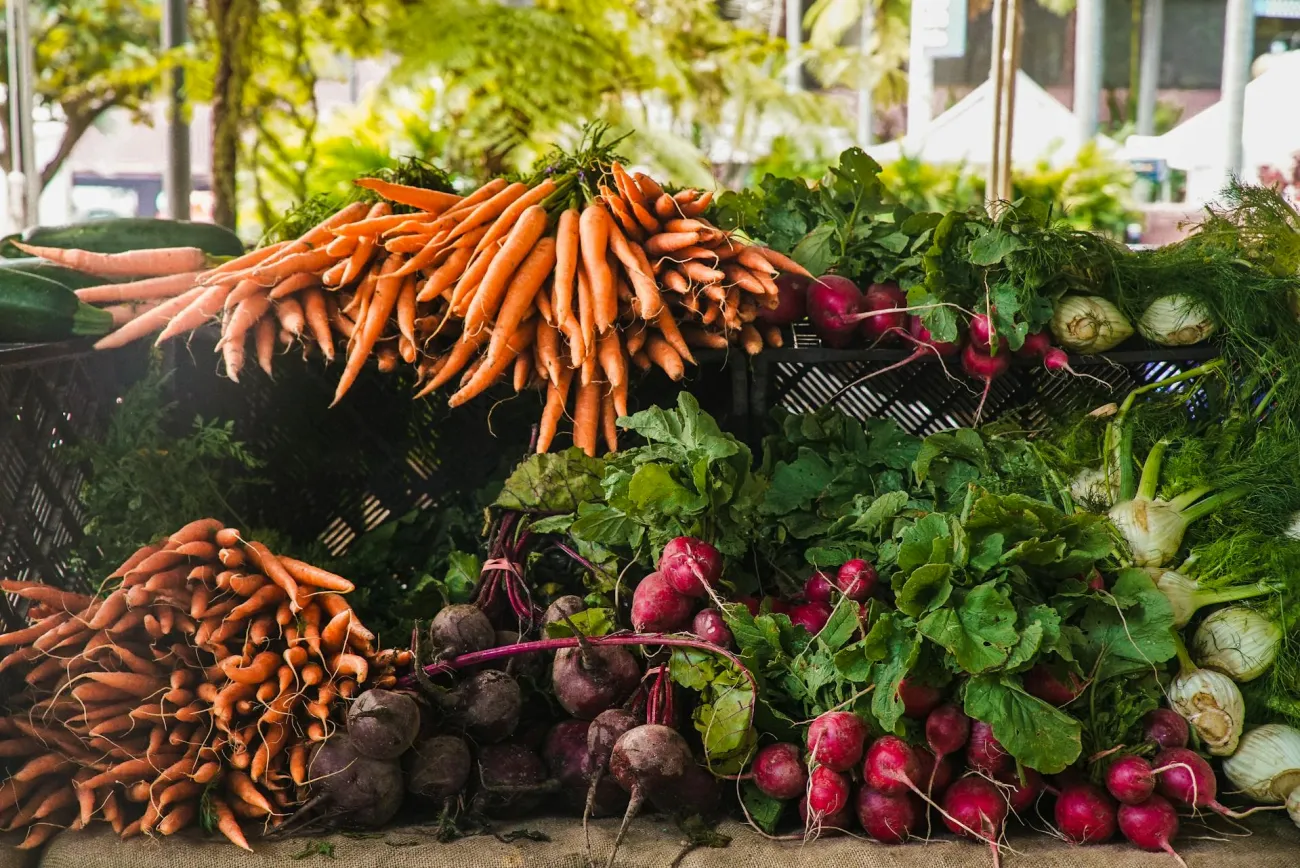This briefing by The Food Foundation explores the accessibility of sustainable, low emission diets for low income groups in the UK. The report focuses on two consumer behaviours needed to meet agrifood emissions targets: a reduction in meat and dairy consumption, and the elimination of household level food waste. The report finds that whilst theoretical models of low income diets are affordable, the reality is that they are often not accessible for low income households.

The report outlines current consumption trends, demonstrating that both red meat consumption and dairy product consumption are higher amongst the lowest income groups when compared to the highest income groups. It also finds that there is a greater awareness of the environmental outcomes of diets amongst higher income groups, though this doesn’t translate to environmentally conscious consumption patterns, and that lower income groups struggle to align their food choices with their values, due to higher prices. However, the authors found little evidence of correlation between household food waste and income.
Diets with low greenhouse gas emissions include greater consumption of fresh vegetables, minimally processed foods and alternatives to meat and dairy products, all of which can be prohibitively expensive for lower income households. Substituting meat consumption with vegetables would result in a significant price increase per calorie, with vegetables being the most expensive food type per calorie. As a result 58% of households in the lowest income currently reach dietary recommendations for fruit and veg compared to 88% on higher incomes. Pulses are often a cheaper alternative to meats with high levels of calories, protein, fibre and nutrients, but require time, specific knowledge and social acceptability to be consumed, all of which are conferred by economic status. Meanwhile other alternative protein and dairy products are significantly more expensive than their counterpart products, with meat alternatives currently 32% more expensive than regular meat and milk alternatives costing close to £2 per litre in comparison to £1 for dairy milk. In addition to cost, low income families face a number of additional barriers in accessing and cooking sustainable foods. These include limited access to cooking and storage facilities, less access to healthy food outlets in deprived areas and less time and bandwidth to spend on food preparation.
The briefing offers three solutions to make low emission diets more affordable:
- Make vegetables and pulses more affordable, available and appealing for everyone. Firstly, the UK government must acknowledge the need to shift diets to meet agrifood emissions targets. This should be reflected in the Land Use Framework by a shift to a less and better meat model. Government institutional food services also offer a key leverage point for dietary shifts, for example by removing the need for schools to serve meat twice a week. Increased production of low emission vegetables in the devolved nations is also essential. Regulations of promotions and marketing of High Fat Sugar and Salt foods should also be tightened. Finally, the UK government must introduce mandatory reporting for large food businesses on food waste, the proportion of animal versus plant-based protein sales, the proportion of sales from healthier foods, and the proportion of fruit and vegetable sales.
- Make meat and dairy plant-based alternatives more affordable, available and appealing for everyone. Government should use fiscal incentives to rebalance the cost of the basket, for example extending the removal of VAT from plant-based milk alternatives to plant-based meat alternatives. Business should increase the appeal of plant based products through marketing and advertising whilst setting price parity with meat alternatives,
- Make waste reduction easier for everyone, primarily through educational programs and engagement with collaborative industry initiatives such as WRAP.
Read the full report here and for more information on what is a healthy and sustainable diet see our explainer




Comments (0)